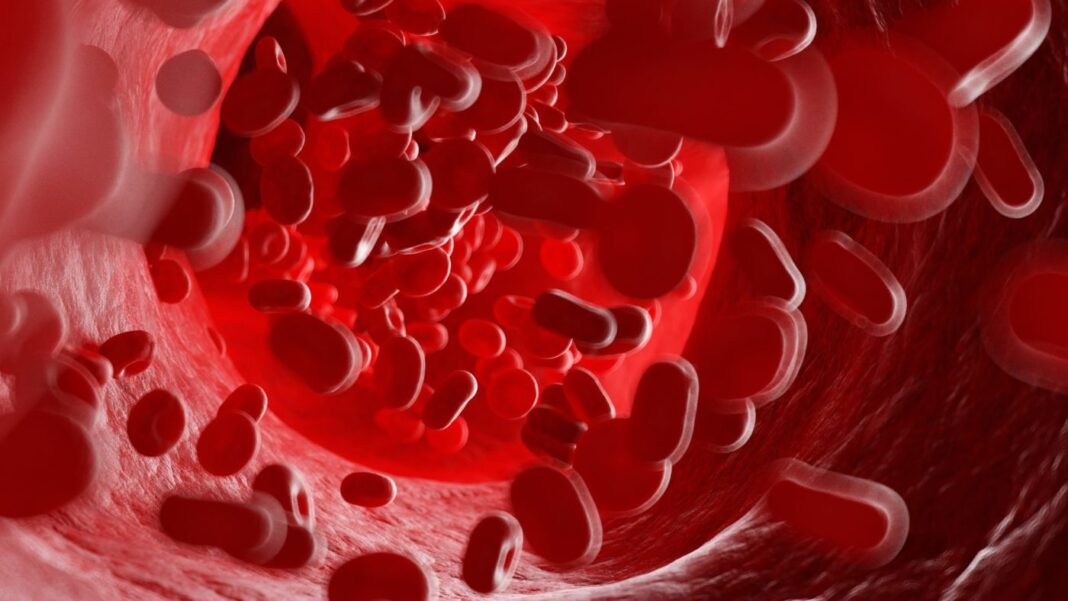The bleeding disorder hemophilia A, inherited by one in 5000 males, is caused by the lack or malfunction of a blood coagulating factor, factor VIII, encoded by a gene on the X chromosome. The clotting factor is mainly synthesized in cells lining blood-filled vessels in the liver.
Spontaneous and life-threatening bleeding events including joint hemorrhages are the hallmarks of the disease. Although currently treated through regular infusions of the FVIII protein to replace the missing clotting factor, this does not prevent joint disease or reduce mortality.
The goal of gene therapy for patients with this bleeding disorder is to enable the body to synthesize factor VIII long-term by packaging its blueprint into a viral vector through a one-and-done injection.
Earlier attempts at introducing the factor VIII gene in hemophilia A patients using an adeno-associated virus vector (AAV), although initially successful showed a decrease in Factor VIII expression over time, undermining the hope for gene therapy to provide a sustained solution for patients with hemophilia A.
Persevering despite the results from earlier trials, scientists at Children’s Hospital of Philadelphia (CHOP) and their collaborators at Harvard Medical School, University of Sydney in Australia, University of Pittsburgh, Penn State Hershey Medical Center, Oregon Health and Science University, and Spark Therapeutics, hypothesized that preventative gene therapy that induces expression of factor VIII in the liver can produce safe and durable levels of the clotting factor that are sufficient to treat patients with hemophilia A.
The results of their study published in the New England Journal of Medicine is the first to accomplish stable factor VIII expression in hemophilia A patients following gene therapy. In the article titled, “Multiyear Factor VIII Expression after AAV Gene Transfer for Hemophilia A” the authors report the results of a phase 1/2 multicenter, international trial (NCT03003533 and NCT03432520) that tests the safety and preliminary efficacy of the gene therapy formulation, SPK-8011, and the durability of expression of factor VIII in 18 men with hemophilia A.

SPK-8011 is a new recombinant AAV vector that includes a liver-specific, truncated transthyretin enhancer and promoter to engineer the expression of factor VIII in human liver cells. The researchers infused SPK-8011 in 18 men between 18 and 52 years old with congenital hemophilia A, a baseline factor VIII activity at least two percent less than normal, no history of factor VIII inhibitory antibodies, and with a titer of one in five or less of neutralizing antibodies to the vector’s outer protective shell (capsid).
The researchers divided the trial participants into four groups by the dose they received. The lowest dose was five hundred billion vector genomes per kilogram body weight. The trial followed the patients for four years to measure factor VIII expression, safety, and preliminary efficacy.
Some participants were also administered glucocorticoids together with the experimental gene therapy to prevent or treat immune reactions to the capsid. Previous research has shown some patients develop an immune response to the AAV capsid, causing the immune system to eliminate the vector, curtailing the chances of sustained factor VIII expression.
There were no major safety concerns in the 18 patients, report the authors. Sixteen participants expressed factor VIII for the duration of their participation in the trial. Twelve of the sixteen participants were followed for more than two years and showed no decrease in factor VIII activity over time. Overall, the participants showed a 91.5% decrease in bleeding episodes.
However, two of the 18 participants lost expression within a year following vector administration. This might be due to an immune response to the AAV vector, which would indicate steroids do not prevent a loss of expression universally.
“These data support our hypothesis that liver-directed AAV gene therapy is a viable approach for long-term treatment of hemophilia A,” said George. “Future research will aim to further improve on this work to safely achieve sustained, stable, and predictable factor VIII levels in all hemophilia A patients.”
The trial was funded by Spark Therapeutics and the National Institutes of Health.


